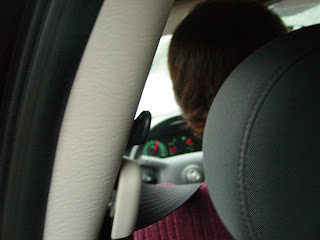You only see what you want to see!
 Well, not exactly. But one social psychologist has shown that what we perceive is sometimes guided by our unconscious desires.
Well, not exactly. But one social psychologist has shown that what we perceive is sometimes guided by our unconscious desires.
Psychologist David Dunning, from Cornell University, is interested in social perception and the accuracy and illusion in human judgment and decision making. He studies the subjective perceptions of people's surroundings and investigates how it differs from objective reality. One phenomena, of which this post is about, is how wishful thinking often affects what people physically see.
In one clever experiment, he tells participants that a computer game will either assign them a letter or a number, which will then tell these participants to either drink a glass of orange juice or an intentionally disgusting, green smoothie. The image that was flashed in front of the participants was something like this "13," just the 1 and 3 were a little bit closer together. This way the image could either be mistaken for the number 13 or the letter B. Participants who were told that if they saw a letter, they could drink the orange juice, more often than not reported seeing the letter B. And as you may be able to guess, participants told to drink orange juice after seeing a number more often than not reported seeing 13. Lying was controlled for by the use of a hidden camera that recorded eye movements.
Interesting study . . . again, if you haven't already checked out the link, a video clip of the research can be found here, under 'Wishful Seeing,' as well as a host of other neat videos.


No comments:
Post a Comment